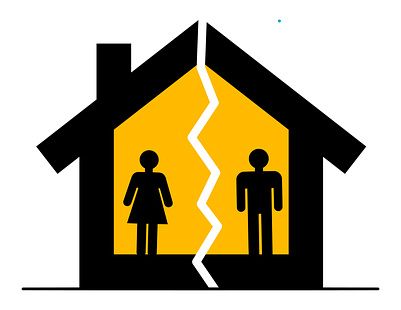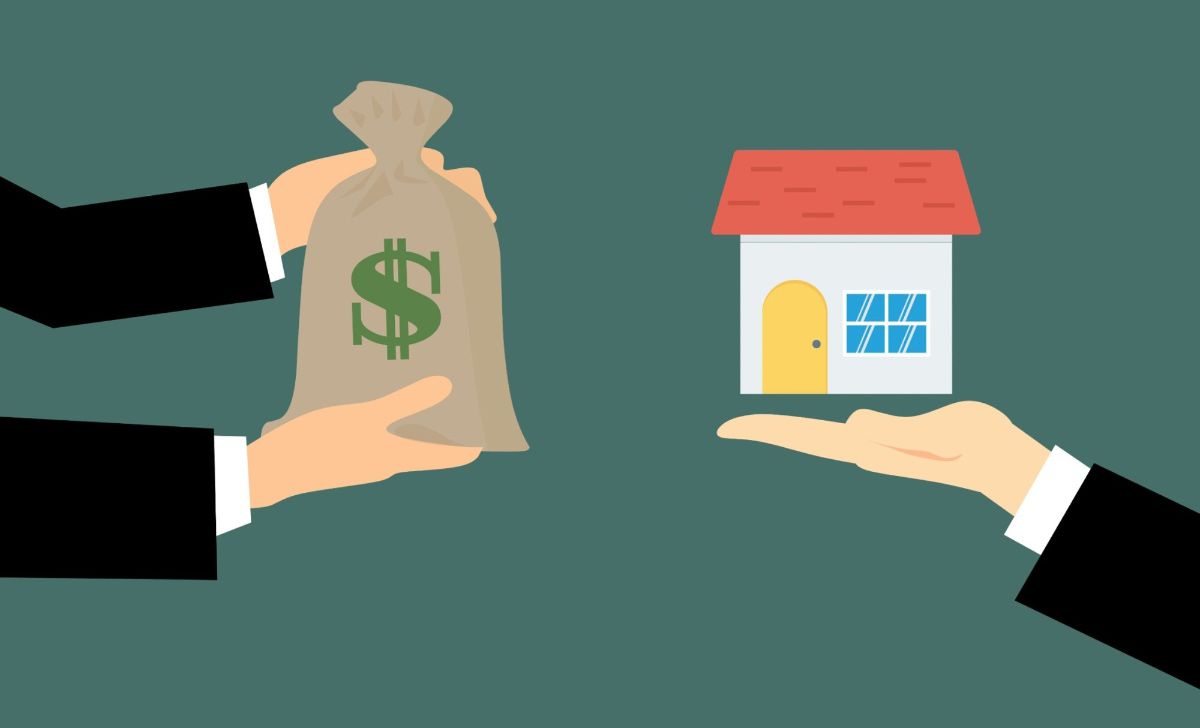How To Sell My House After Divorce In Connecticut

Selling a house after a divorce in Connecticut might be difficult, but it is not necessary. You will have a streamlined transaction if both sides agree on the sale price and all other parameters. The solution is to collaborate with an experienced realtor who understands how to manage these situations meticulously.
In this article, we'll go through the procedures you need to do after being divorced in Connecticut in order for the process to run as smoothly as possible for everyone concerned.
Selling a Home In Connecticut After A Divorce Has Never Been Easier
How are you going to sell your home in Connecticut after your divorce? Are you curious about what happens to property in a divorce or how fair market value is determined when selling the marital house? If so, this article has some useful information.
We hope that selling the marital house after a divorce is a simple and uncomplicated process for both of you, but it can be fraught with conflicts and harsh feelings.
This article's information should assist you in resolving any issues or confusion that may arise while selling your property.
What Happens To A Divorced Couple's Home?

Most individuals in Connecticut would like not to sell their house, much like they would prefer not to sell one of their kidneys. However, there are situations when selling your house makes sense, such as when you're divorcing and need to divide your assets.
Before we get into how to sell your home after divorce, let's look at what usually happens to the house after your divorce:
One Spouse Is In Charge Of The Household
This is generally the person who has been living in the house; as a result, that individual can continue to live there and often does not wish to sell.
Sale Of The Property And Division Of The Proceeds
This is frequently the result when both couples want to sell but can't agree on a price or what to do with the proceeds. If this occurs, a judge will decide how much each couple receives from the sale of their joint house.
What Problems Can Arise When Selling A House In Connecticut After Divorce?
If either spouse opposes the sale, it might cause delays and possibly lead to the transaction failing entirely. If they refuse to agree on a sales price or pay their portion of closing costs and other obligations after the house has been sold, you may be obliged to sell it for less.
If the residence is regarded as marital property (family law), you may be required to pay your spouse their portion of the equity, as well as the capital gains tax bill, if the court considers in favor of a 50/50 split.

How To Sell Your House After Divorce
Now that you know what might happen when selling a house after a divorce, let's look at the measures you need to follow to ensure a seamless property sale.
1. Sell Your House As Is Fast To A Local Instant Cash Buyer
Selling your house to us is the quickest and least stressful option. After going through a divorce and the stress that comes with it, you may not want to work with a broker, pay the realtors 6% of the asking price, fix your property, and style it.
This alone might take a year. When you sell to us, there are no commissions or repairs, and we close in 7-21 days on average. That's correct, you may get cash for your house within 30 days.

2. Hire An Experienced Real Estate Agent
There are several realtors to choose from, but not all of them have expertise in selling properties after divorce. As a result, it's critical to choose a Realtor that understands how to handle real estate transaction professionally.
You can get references from relatives and friends, or you can look online for someone who has expertise with home sales involving divorced couples.
3. Take Care Of Any Mortgage Payments And Utilities Before The House Is Sold
You don't want your partner to refuse to pay for anything after the house has been sold, so take care of any necessities—such as mortgage payments and utilities—before selling it.
4. Help Your Spouse Find A House To Buy
Because your spouse will need a place to live once you sell the property, it is beneficial to assist your spouse in finding and purchasing a new house before the sale is finalized. They won't refuse to pay their part of closing costs or other charges after the house has been sold this way.
5. Agree On A Sales Price And Other Details
When selling your house after a divorce, it's vital that you and your spouse agree on a price. Separating couples sometimes utilize a Stipulation agreement to establish whether or not they may sell their property, how much equity each spouse is entitled to upon sale, and what they will do with the sales profits once the home is sold.
You might be able to figure it all out on your own. Even if you've already engaged an attorney for your divorce, you should always consult with your attorney before signing any legal paperwork or agreements. It is critical that you both follow the terms of your contract after it has been signed.
6. Sell Your House For The Highest Possible Rate
Before selling your home, most real estate market agents will do a comparative market study to establish how much you may expect to get for it. As a result, it's critical that you engage with an agent that understands how to accomplish this and can assist you in determining the best price for your home.
7. Divide The Sum From The Sale
Before settling on a sales price and other specifics, it's critical to decide how much money each couple will receive from the sale. This way, there will be no arguments regarding what should happen with the received amount if it is sold.
Her part of the equity in the house should be based on what she needs to maintain a similar quality of life after the divorce.
8. Split The Sale Of The House In Terms Of Taxes
When the house is sold, and the two parties are agreeable, sharing the transaction will be simple. This is, of course, after they have paid payments for the mortgage, Property taxes, real estate agent, closing charges, and so on. If the profit division is not resolved, a more sophisticated process will follow. This will be covered in greater detail in the second half of this article.
9. Selling At Auction
If you want to sell your property quickly, putting it up for auction is a good option.
Over the last few decades, auction houses have broadened their scope to include all sorts of assets.
You'll usually have to wait longer than if you sold your property quickly for cash.
However, you may rest assured that once the hammer falls, the buyer must proceed. Withdrawing will result in severe financial consequences.
There is also the modern method of auction, which has been criticized by certain industry experts. This is somewhere in the middle between an estate sale and an auction house sale.
Advantages
- Auction property buyers are 'business-minded'. They frequently want to acquire as soon as you want to sell; you won't generally deal with customers who waste your time, especially after the hammer falls.
- If the property has structural flaws, you should be able to sell it (although at a lesser price); any buyer will have the necessary funds.
- Most auction companies will allow them 20-25 working days to finish; deals that fall through following a successful offer on your home are uncommon.
- The buyer must pay a 10% deposit plus costs, which will be forfeited if the transaction is not completed; the price negotiated at the fall of the hammer (typically more than your reserve) will not alter.
Disadvantages
- People underestimate how long auction transactions take. Before you can advertise your property, you must first list it. Prospective purchasers must see and review the legal package. Popular auction houses frequently have a waiting list, so you may have to wait even longer to get into the list.
- After the trigger is pulled, you'll have to wait a month to finish. The fact is that it can take 3-4 months to sell at auction; auction houses often have two or three open days for possible buyers. While you are not required to be there, it may create some inconvenience; the expenses of selling, in terms of legal and estate agency fees, are substantially greater (often double).
- If you do not sell on the day, some auction houses charge a relisting fee; the larger auction companies frequently charge for room hire, use of their web platform, and other supplemental advertising expenses.
- Remember that placing a property up for auction does not guarantee a sale. There is a 25-30% possibility that your home will not sell, especially if you set the price too high; auction houses, like estate agents, are anxious to acquire your business.
- This may result in their overvaluing of your property. As a result, you end yourself in a pile of unsold lots on auction day. The good ones will look out for your best interests.
How To Share The Profit From A House Sale After Divorce?
If the family home in Connecticut is sold while the divorce is pending, the profit must be divided through the couple's attorneys.
The lawyers can determine whether the property belongs under
community
property states or
equitable distribution laws. The distinction between community property and equitable distribution is whether assets are distributed equally or equitably.
If the house is not recognized to be community property, the court and divorce counsel will negotiate and decide what is fair. This happens immediately following the payment of taxes and mortgages.
It is difficult to divide the proceeds after selling a home. If one spouse contributed more to the purchase and care of the house, they might claim a bigger percentage of the sale.
If the partition of revenues cannot be agreed upon by divorce attorneys, the court will make the ultimate decision. Often, the court's ruling is not to anyone's benefit. As a result, it is strongly advised that the pair establish collective consent on their own.
FAQS
Get a Competitive Cash Offer & Flexible Closing Date: Sell Your Connecticut Home After Divorce Now.
Couples that need to sell their family home in Connecticut quickly might investigate real estate investors and cash house buyers. These purchasers have the means to make quick cash offers. This allows both you (couple) to recover their equity and move on as soon as possible.
In contrast to selling through a real estate agent, a quick sale with a cash buyer means fewer months of paying taxes, insurance, mortgage payments, utilities, and maintenance. Because of the conveniences, selling your property to an instant buyer with good cash offer in Connecticut is a common alternative among divorced spouses.
If you are looking to sell your Connecticut house quickly after a divorce and do not have time for traditional methods like listing with an agent or waiting months for buyers, consider getting in touch with Quality Cash Buyers.
Our team will provide you with competitive cash offers that are tailored to fit your needs, as well as flexible closing dates so that you can move on from this difficult chapter in life without any added stress. Contact us today to learn more about how we can help make selling your Connecticut home fast and easy!
Sell Easily & Quickly with Our Expert Support
Get a Cash Offer for Your Home Today
Get an Online Fair Cash Offer Now!

